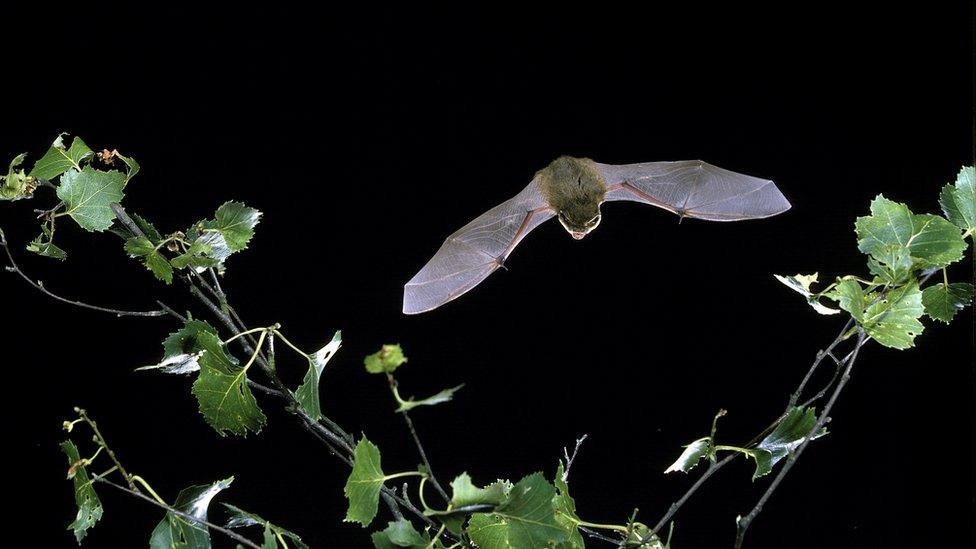Barbastelle bat colony could be devastated by Norwich road, experts say
- Published
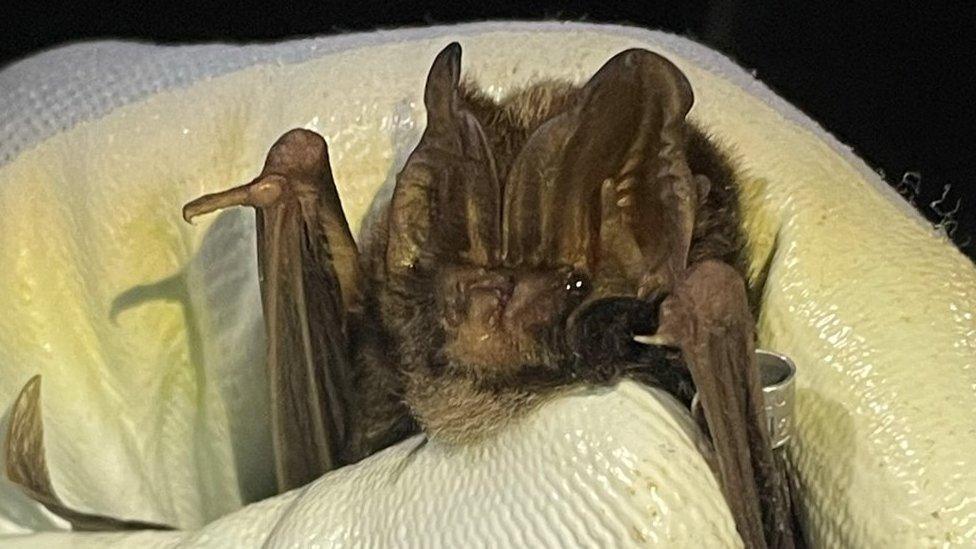
Barbastelle bats have formed a "super colony" in an area proposed for a major new road
The route of a proposed new bypass road could "spell the end of [an] incredible super colony" of rare Barbastelle bats, a wildlife expert said.
The 3.9-mile (6.2km), multi-million pound Norwich Western Link (NWL) would connect the Northern Distributor Road (NDR) to the A47 west of Norwich.
Norfolk Wildlife Trust is studying its possible impact on the resident colony.
Norfolk County Council said amid concerns about the bats it had moved the route and put mitigations in place.
However, Dr Lotty Packman, a conservation scientist at the wildlife trust who has been studying the bat population in woodland at Ringland on the proposed route, said concerns remained.
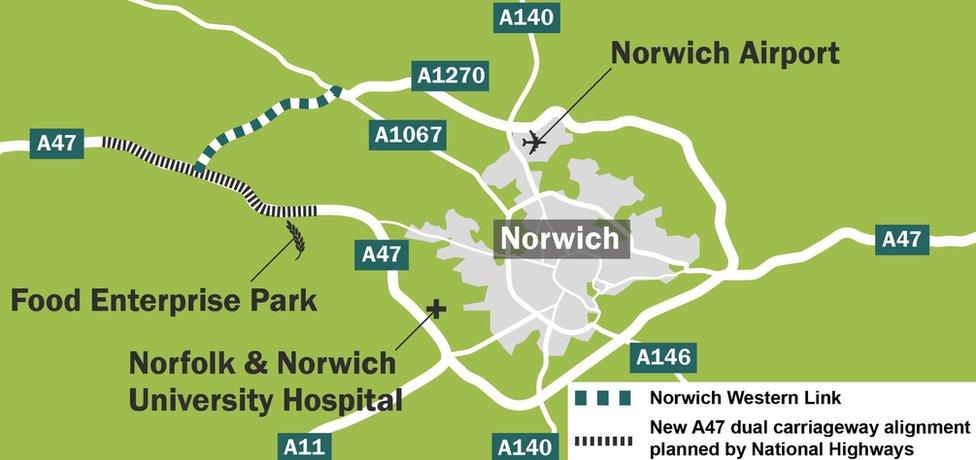
The Norwich Western Link is intended to complete the A1270 Northern Distributor Road, connecting the A47 east and west of Norwich
She said barbastelle bats were "really rare... Norfolk is a stronghold".
"What we've discovered here is probably the largest population in the UK," she added.
"It's extraordinary; we call it a super colony; each of the woodlands has got its own colony and those individuals are faithful to those colonies, so it's a really incredible population."
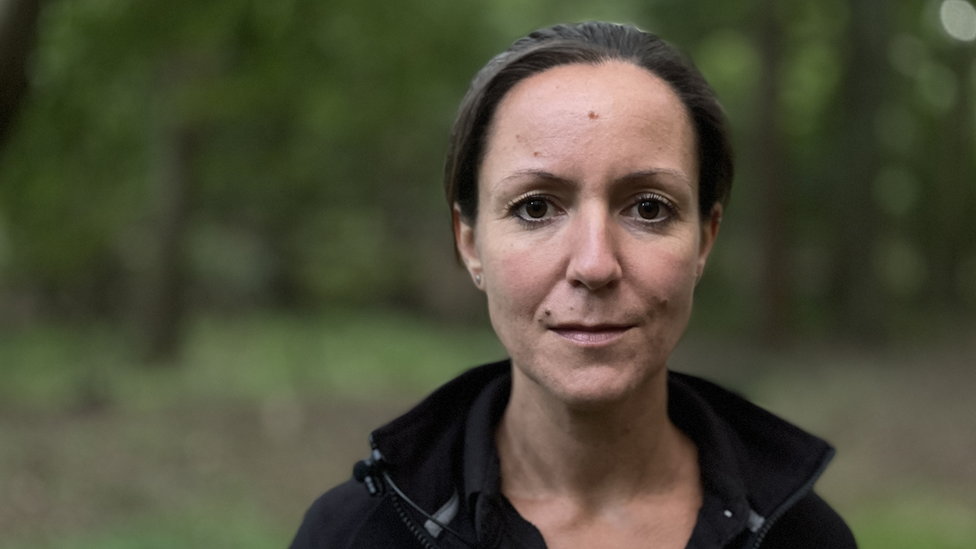
Dr Lotty Packman, a conservation scientist at Norfolk Wildlife Trust, was concerned about the bat super colony
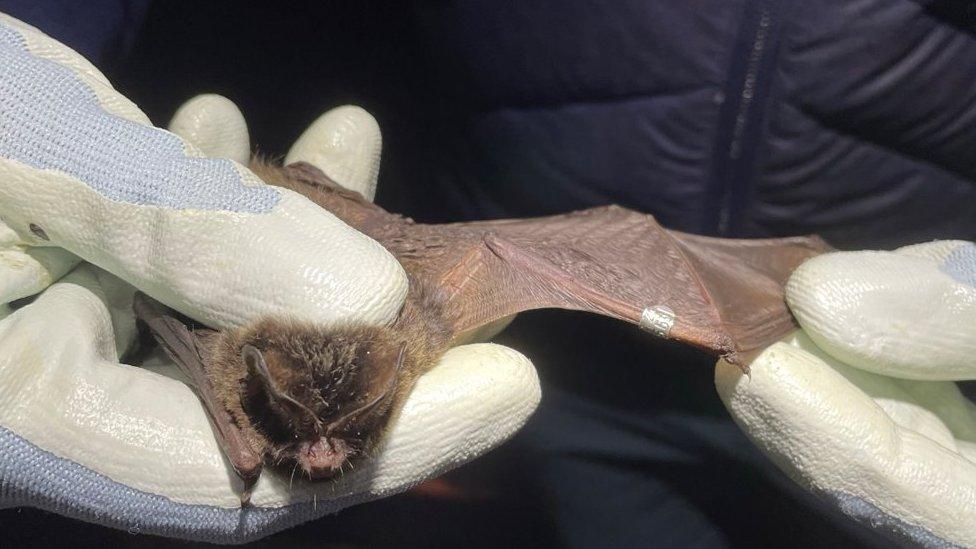
Some of the bats are being ringed so they can be monitored in the future
The current study involves nets being placed around the woods to trap the bats, which are then fitted with transmitters to enable monitoring.
Dr Packman has been licensed by Natural England to carry out the "fiddly" work of gluing transmitters on to the bats' backs, which then fall off after about 10 days.
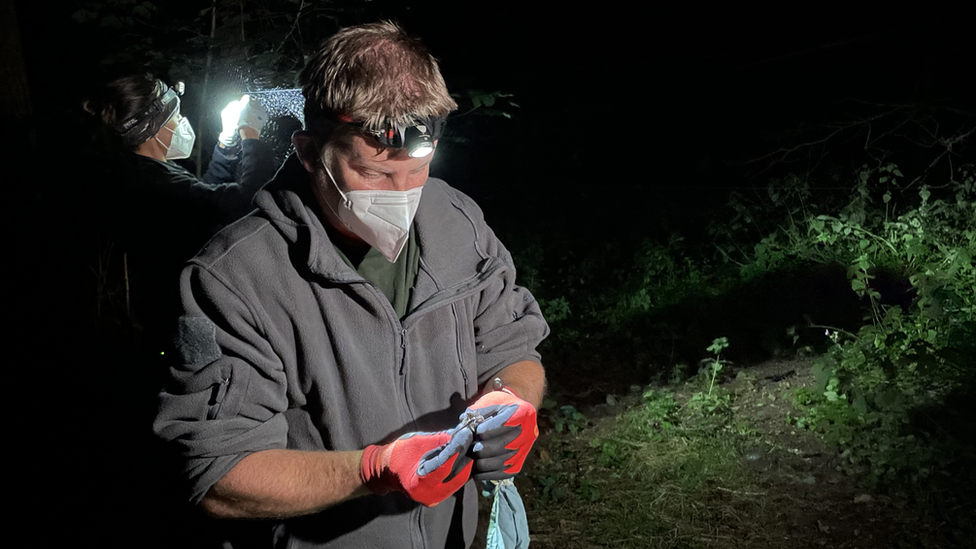
Iain Barr, professor of field ecology at the UEA, is also working on the study in Norfolk
The trust was already studying the bats before the road plans progressed.
"Part of the work we're doing is looking at the impact of roads and the impact of the NDR," said Dr Packman.
"We know from our radio tracking that barbastelles aren't using these mitigating road structures that they built on the NDR, so our concern is that very similar measures are going to be put in here and there just isn't the evidence to show that they work."
She said colonies near the existing NDR "seem to have disappeared".
"We really think if the road comes through here it's going to spell the end of this incredible super colony," she added.
"Bats perform really important eco-system services for us. We'd probably be overwhelmed with insect and crop pests if it wasn't for bats."
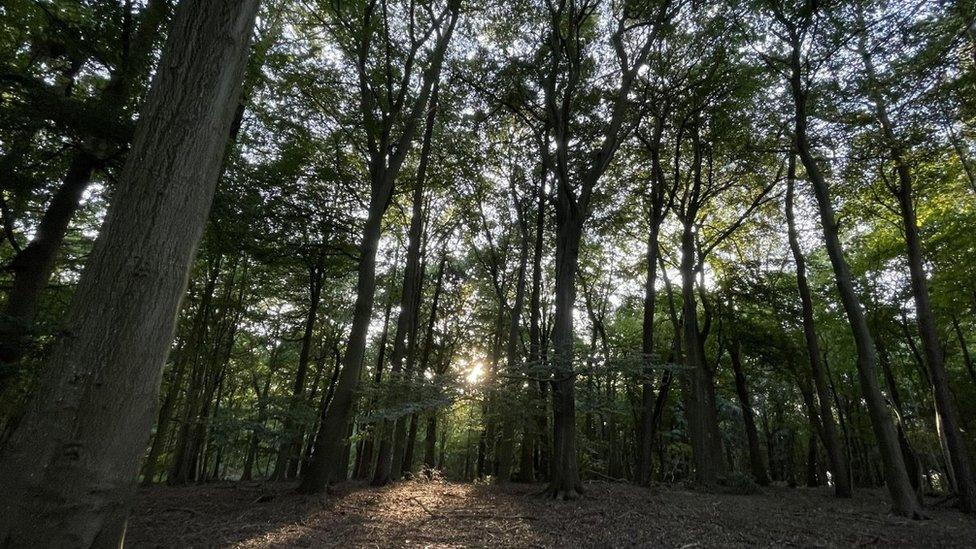
The woodlands in the Ringland area in the Wensum Valley, north-west of Norwich, are home to numerous bat colonies
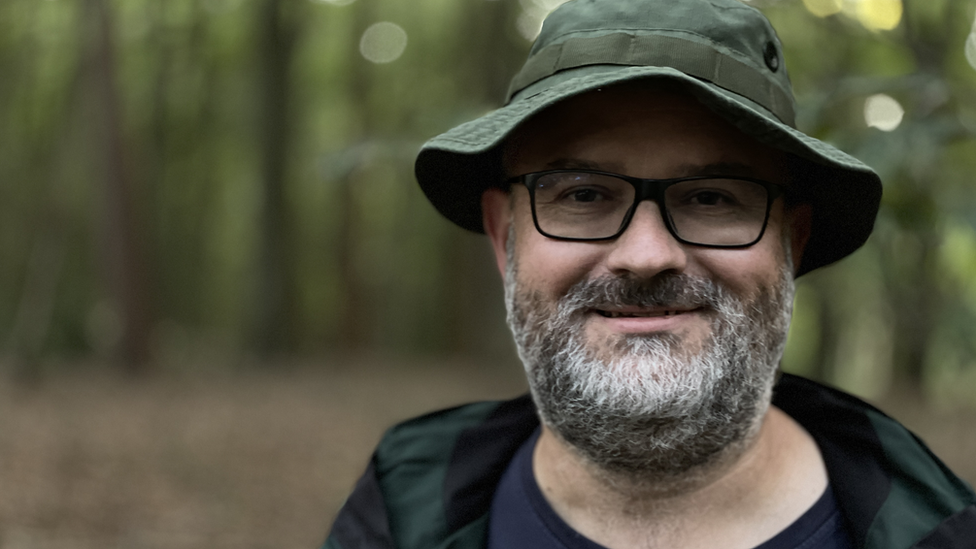
Iain Robinson owns a plot of woodland and said a link road would "sever contact between different parts of the landscape"
Iain Robinson, who bought a plot of woodland in Ringland in 2015 in the hope it would bring his children closer to nature, disagrees with the proposed route.
It was an attempt to "take stewardship of an area of woodland and understand the wildlife much more intimately" and he invited the wildlife trust team to monitor bats there.
"We obviously don't want it [the NWL] built here. We're only here temporarily - the woods have been here for centuries," he said.
"The people who planted some of these oaks... did so in the anticipation future generations would be... enjoying this habitat."
The woodland was part of a "tapestry of habitats" and he said "if you stick a road through that you're severing the contact between different parts of the landscape".
Mr Robinson was dubious about whether mitigation put in by the council would work.
"Undoubtedly there would be a significant impact not only on the bat populations, but on the populations of all the other animals living in this wonderful Wensum Valley," he said.
"We can't continue down the same route we've been going for all these years, and I think... do we spend £300-plus million on a three-mile road or do we spend [it] on better public transport, on better education for drivers?"
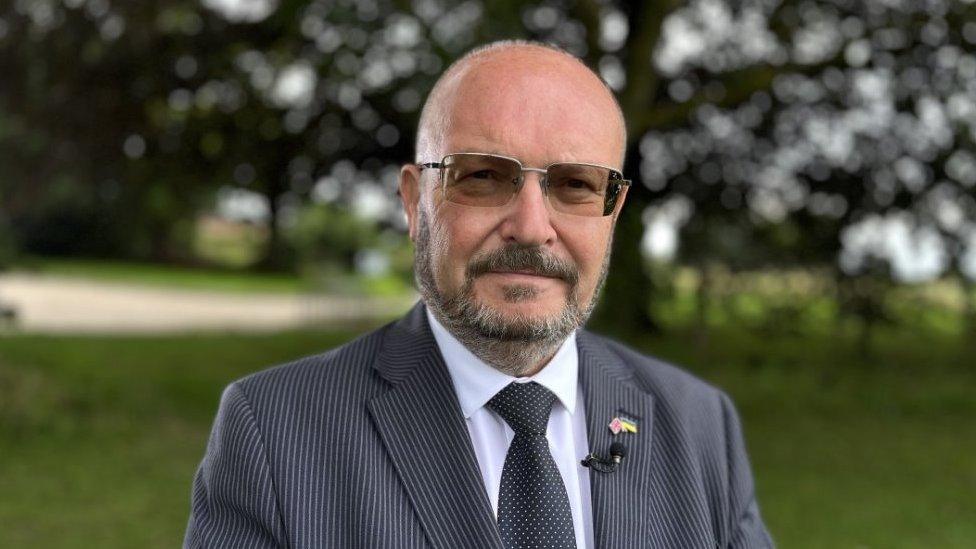
Graham Plant, from Norfolk County Council, said the proposed link would benefit residents of nearby villages
Conservative-run Norfolk County Council is in charge of the project to build the new road.
Graham Plant, cabinet member for travel, transport and infrastructure, said people living in Weston Longville and other villages would benefit.
"This will take the traffic away from all these little villages and make life a lot easier," he said.
Mr Plant said the project was "needed - very much".
"We were really worried about the bats. We've done a lot of mitigation to try and alleviate any issues that did come up," he said.
"We've done a lot of surveys, we've moved the road to take it away from any bat population and we're really serious about making sure the build does not affect wildlife."
He added the proposed road would help the economy and tourists as it would provide a ring road around the city.
Earlier estimates put the cost of the link road at about £250m, but this week the Labour opposition at the council claimed a more realistic figure was £400m.
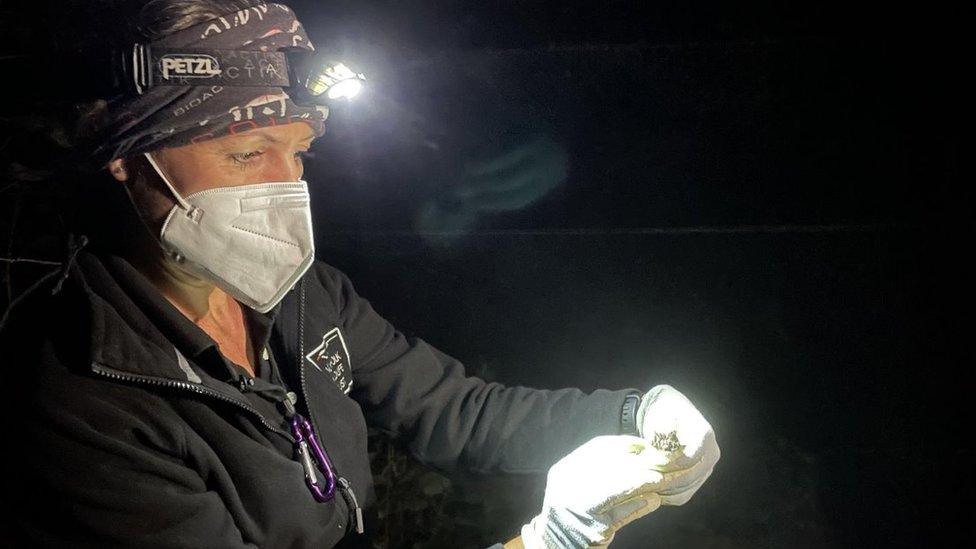
Dr Lotty Packman mainly works at night - when the bats come out
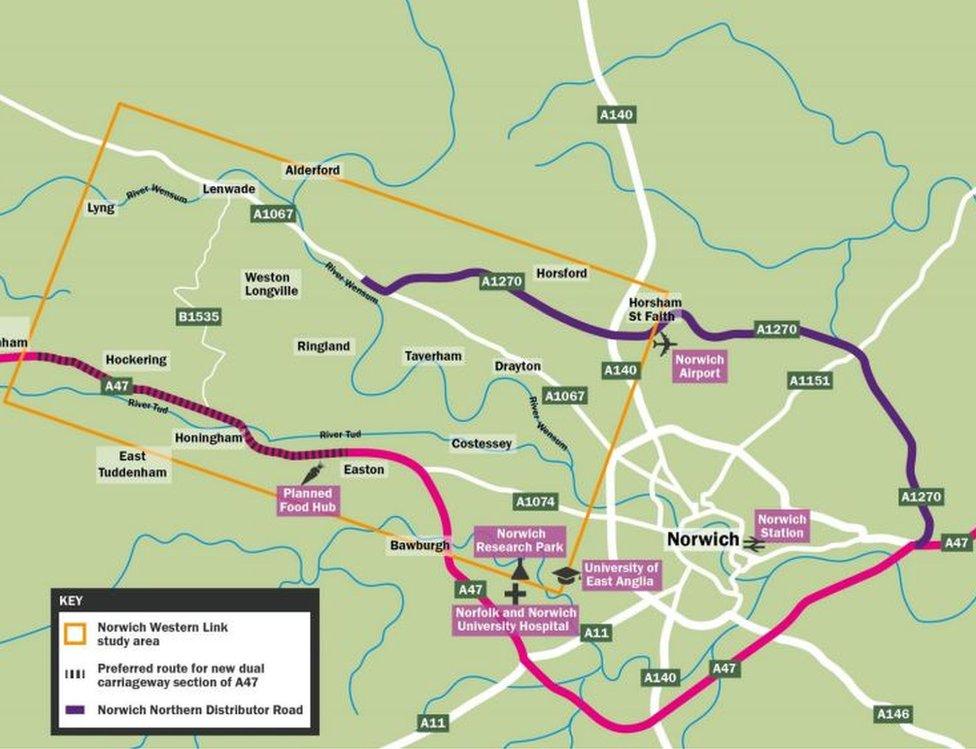
An earlier version of the map showed the area where the county council was considering building the Norwich Western Link

Follow East of England news on Facebook, external, Instagram, external and Twitter, external. Got a story? Email eastofenglandnews@bbc.co.uk or WhatsApp us on 0800 169 1830
- Published8 August 2023
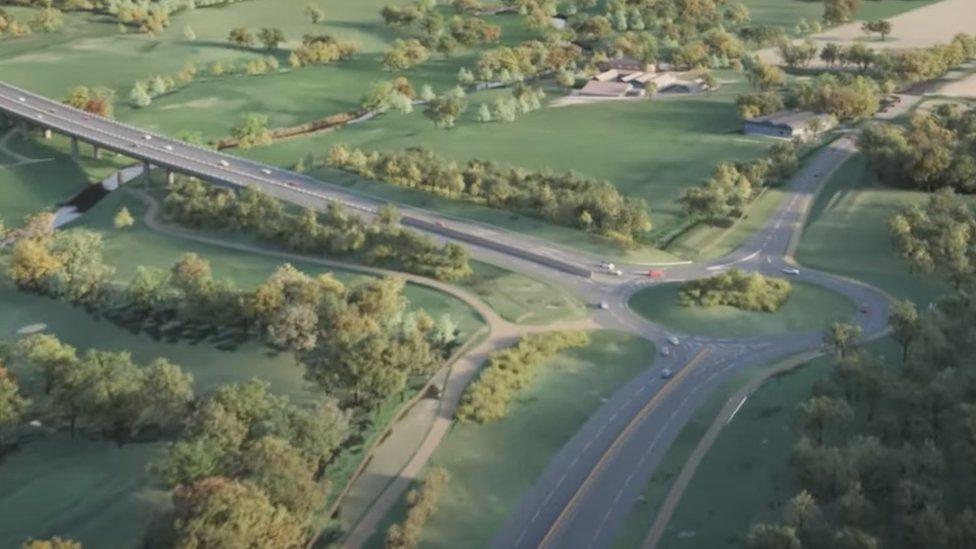
- Published21 April 2023
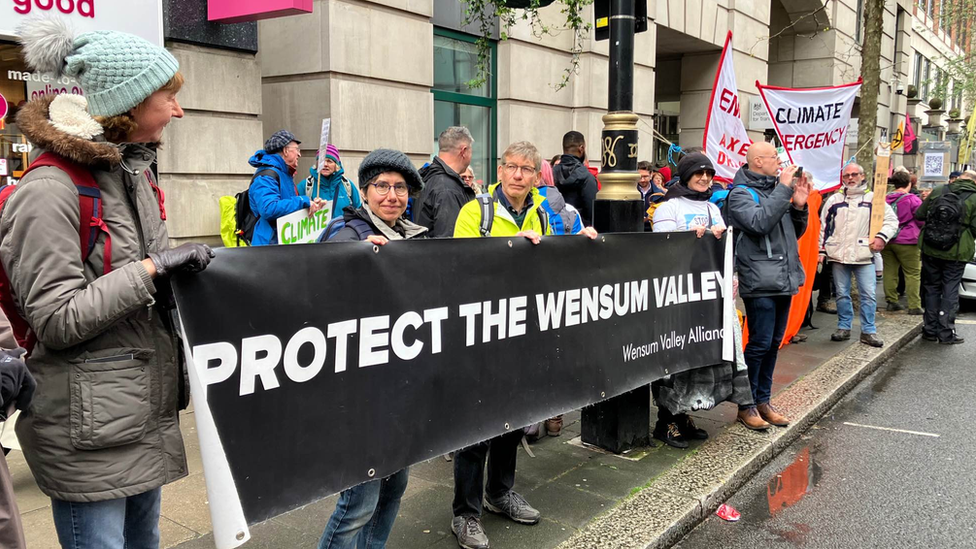
- Published2 February 2022
